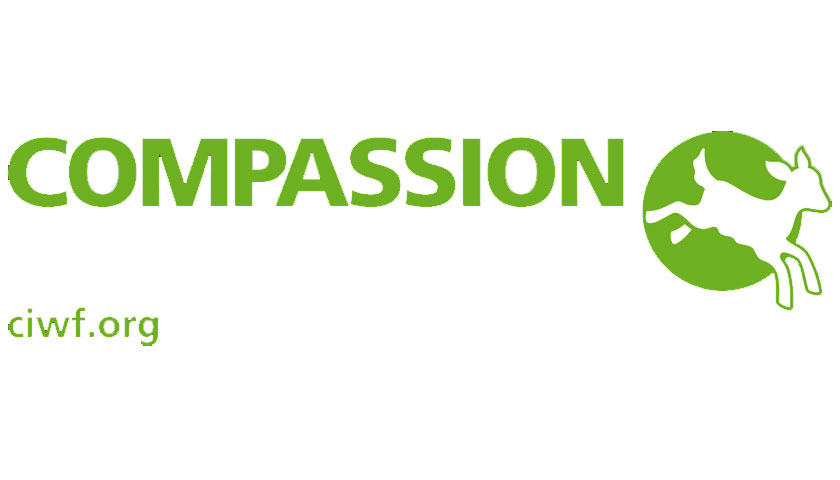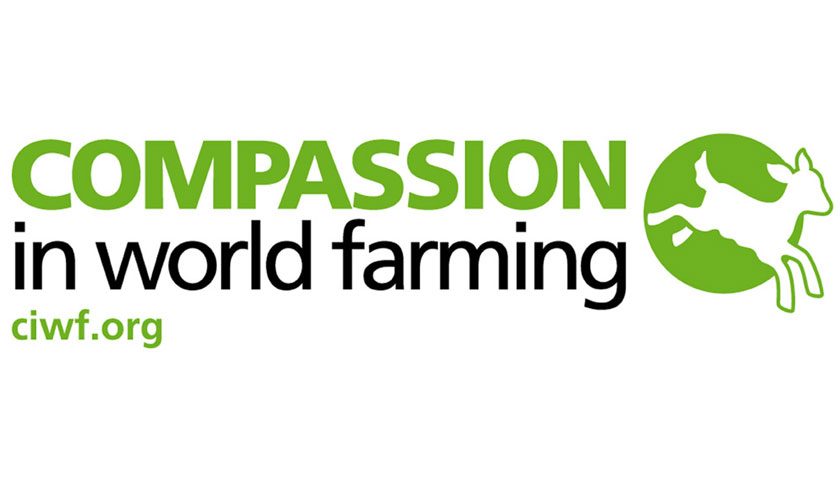Following the success of Compassion in World Farming’s US EggTrack Report last year, the farm animal welfare charity has today launched a new report to show the progress European companies are making towards meeting their 2025 cage-free egg commitments.
In recent years, a wave of cage-free egg commitments from leading food businesses around the world has promised to transform the future for laying hens. Compassion actively campaigns to ban all cages in livestock farming and many of the companies that have made cage-free commitments are recognising that caged systems do not deliver a good enough quality of life for hens, are unwanted by consumers and therefore on their way out.
The aim of the European EggTrack report is to celebrate those companies that have made public commitments, to encourage them to report year-on-year progress towards their cage-free goals and to stimulate a true market shift away from cages.
The Report presents data from 83 group-level companies, featuring retailers, food service and out-of-home companies, manufacturers and producers. It is designed to help monitor how companies are progressing and for Compassion to be able to offer timely help, advice and support when they are slipping behind in their progress towards cage-free production.
While the 2025 commitment target may still seem a long way away, it equates to only five laying hen flock cycles. To enable the transition from caged to alternative systems that fully respect the welfare needs of the hen and that are fit for the future, companies must start planning their production system changes now, and work closely with suppliers to ensure implementation by the agreed deadline. It is no good waiting until 2024 to act. EggTrack monitors this progress.
Although EggTrack presents data from 83 group level companies which have been selected for their size and therefore potential impact in the market, there are in fact 132 subsidiary business divisions, with a total of 201 individual commitments being tracked. Companies include Asda (Walmart), Compass Group, Co-op UK, Danone, JD Wetherspoon, Lidl and Unilever. The breadth of companies shows that any company yet to make a cage-free commitment is seriously falling behind the curve.
Noble Foods is noteworthy for being the sole producer included in EggTrack this year and Compassion urgently calls on other major egg producers to commit to ending the use of cages, reflecting the commitments made by their customers.
EggTrack highlights the progress companies are making across not only shell or whole egg, but also their product and ingredient egg supply chains too, which are just as important but often forgotten when it comes to commitments and reporting.
The data for the report has been compiled from publicly available information on company websites during the first two weeks of August 2018 and will be reviewed annually at the same time of year to report on progress up until the 2025 deadline. The number of companies reported on will also increase over time.
Key findings from the first European EggTrack report are:
- 75% of companies are reporting progress for at least a part of their company’s supply chain.
- 43% of companies are reporting against all their commitments for all parts of their supply chains to which they apply. However, conversely this also means 57% of companies are yet to report fully against their commitments.
- The closer the commitment end date, the greater the proportion of companies reporting progress and the greater the levels of progress that have been made. (Some companies committed to go cage-free before 2025 based on their calculations of how quickly they believe they can complete the transition).
- Of the commitments with 2025 end dates, 18 (just a quarter) have been reported against and the average percentage of eggs (within that 18) that are now cage-free is 48%.
- The average reported progress for future commitments (with end dates between 2018-2025) for shell eggs is 61% and for product/ingredient eggs is 47%.
The generally very good levels of progress reporting show that food companies in Europe are really taking this issue seriously and making headway against their commitments. However, there is of course room for improvement and Compassion encourages all companies to report against their commitments to send a strong signal that the industry is truly committed to ending the use of cages for laying hens.
To achieve their cage-free commitments, Compassion urges companies to:
- Provide clarity on the scope of their commitments and report progress on all commitments
- Extend commitments to cover ‘hidden’ product and ingredient eggs
- Work with their suppliers now to ensure deadlines are met and a progressive transition to cage free production is achieved
- Ensure that they invest in the best alternative systems, which are fit for purpose (provide a good quality of life for hens) and fit for future (are acceptable for the lifetime of investment and successfully address emerging issues, e.g. operating with intact beaks).
Philip Lymbery, Chief Executive Officer, Compassion in World Farming concludes: “The incredible wave of cage-free egg commitments that we have seen from leading food businesses around the world over the past couple of years have made this an amazing time to be part of the animal welfare movement. I congratulate every company that has been part of this landmark shift.
By building a roadmap for improvement now, companies have the time to research and implement the changes required to fulfil their welfare commitments. It is essential that the design of alternative systems fully respect the welfare needs of the hen and are fit for the future. Some of the intensive barn systems coming onto the marketplace are little better than the cage. Neither the animal welfare community nor the egg industry wants to see a repeat of the investment into enriched cages, which have had a lifespan of a mere five years before they have become unacceptable.
The Food Business team at Compassion will continue to work with food companies, providing advice and support to help facilitate the transition to cage-free systems and I urge you to take advantage of their knowledge and expertise.”
There is no excuse for companies without a cage free policy in the EU not to have one. The cage is outdated and in some countries such as Switzerland and Luxembourg, it is outlawed. Elsewhere, without such government-led legislation, the food industry must work together to achieve the same end goal and Compassion hopes EggTrack will help encourage and support companies through their transition to cage-free production.
Visit https://www.ciwfdocs.org/docs/~D111877 to read the full European EggTrack Report.

